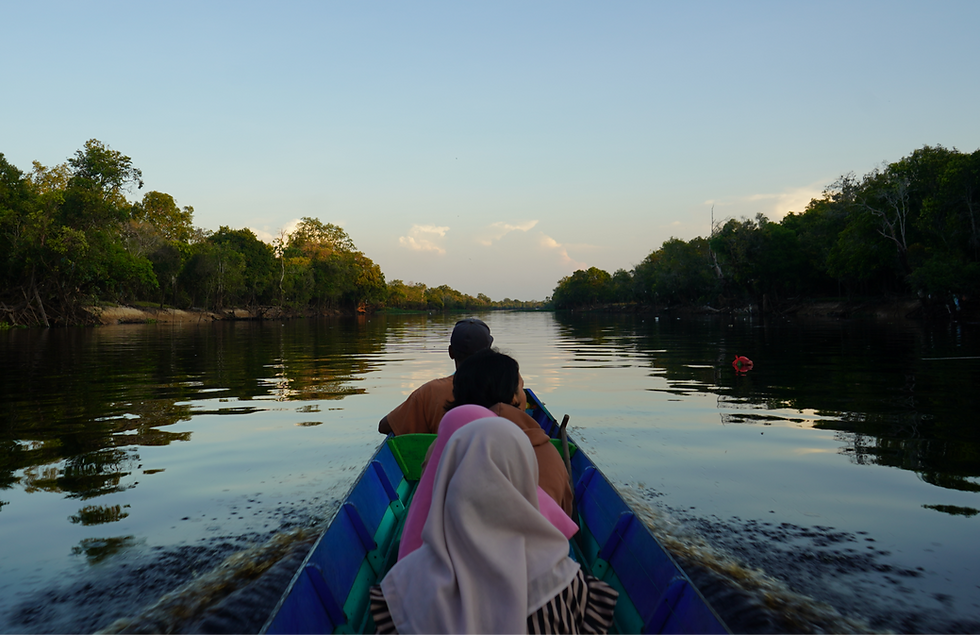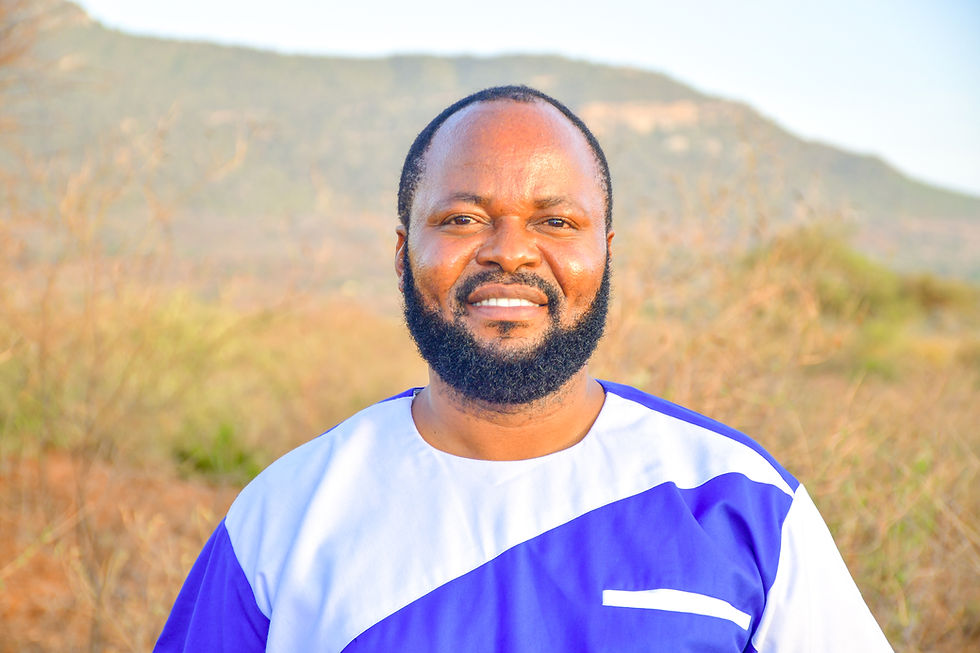Health, Wealth and Happiness: Rukinga Sanctuary hosts a health and finance management seminar for em
- Jan 3, 2013
- 3 min read
Updated: Aug 5, 2024
Living in rural Kenya can mean limited access to formal institutions such as hospitals and banks. The closest hospital to Rukinga is St. Joseph Shelter of Hope located in the town of Voi, along with the closest bank. With Voi several hours away, many staff members at the Wildlife Sanctuary are paid in cash and find it hard to save money for the future. The Sanctuary’s Human Resources Department decided to host a special seminar bringing in speakers to teach Wildlife Works staff members how to stay on top of their health and finances. The goal of the talk was to provide employees with the tools needed for success.
On November 7, Dr. Andrew from St. Joseph Shelter of Hope and the finance team from Kenya Commercial Bank visited the Wildlife Sanctuary in Rukinga to speak in front of employees. The KCB finance team taught employees about how banks can keep their money safe. They demonstrated how to open a bank account and answered audience members’ questions on money issues.
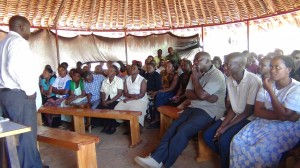
Dr. Andrew spoke about the causes, treatments and preventative measures for cancer, tuberculosis and HIV/AIDS. The doctor took time to focus on the Human Papillomavirus (HPV) and cervical cancer, which is common among married women in Kenya because it is sexually transmitted. The audience was shocked to hear that men can carry HPV without showing any signs and put women at risk. The doctor also gave information on detecting early symptoms and advised women to get annual pap tests and cervical cancer screenings. While there is no cure for HPV, there are treatment options if one discovers cancerous cells in an early stage.
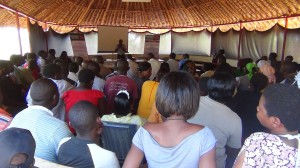
Dr. Andrew also discussed the symptoms of breast cancer. He demonstrated to the audience how to do self examinations by lying face up and using one’s hand to test for any unusual lumps or pain in the breast. If pain is detected, doctors can test for cancer while still in an early stage. The treatment for breast cancer is a mastectomy, where the breast is removed and one can use an artificial breast in its place. The doctor emphasized that removing a breast is far better than losing one’s life at a tender young age.
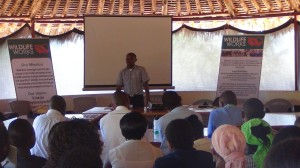
Dr. Andrew also accepted questions from the audience on HIV/AIDS and tuberculosis.
Rua from Wildlife Works thanked the two teams and all those who ensured that the day was a success. HR Manager Laurina Lenjo also expressed his gratitude to the speakers and audience members.
According to our in-the-field community reporter Rose, the seminar has been a great success! Staff members have opened bank accounts and are planning for the future. The workers are talking more openly about health issues and many of the women working at Wildlife Works’ Rukinga Sanctuary have gone in for cervical and breast cancer screenings. We wish everyone at Wildlife Works a healthy, prosperous new year!
* * * * * * * * *
Wildlife Works is the world’s leading REDD+ (Reducing Emissions from Deforestation and Degradation), project development and management company with an effective approach to applying innovative market based solutions to the conservation of biodiversity. REDD+ was originated by the United Nations (UN) to help stop the destruction of the world’s forests.
Over a 15 year history Wildlife Works established a successful model that uses the emerging marketplace for REDD+ Carbon Offsets to protect threatened forests, wildlife, and communities.
The company helps local landowners in the developing world monetize their forest and biodiversity assets whether they are governments, communities, ownership groups, or private individuals.
